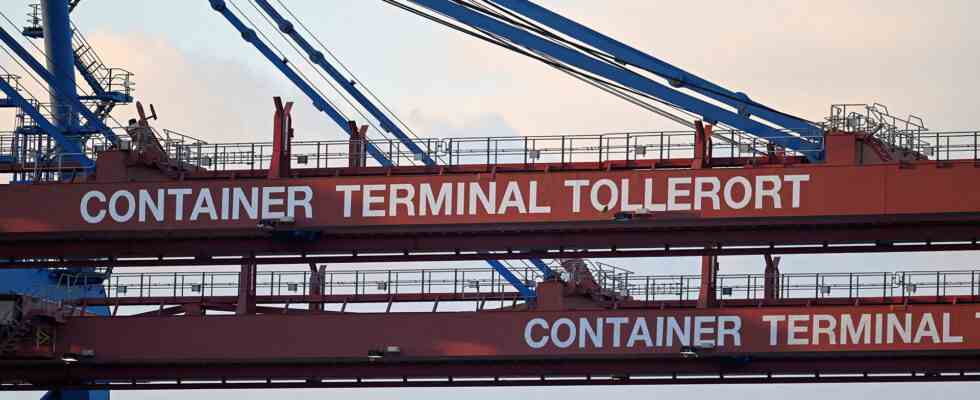comment
Status: 10/26/2022 4:55 p.m
In principle, the critics of Chinese involvement in the port of Hamburg are right. But there are also good reasons for the deal – and the current criticism of it exceeds all measure.
Admittedly, there are good arguments against the port deal. Under the newly confirmed head of state and party leader Xi Jinping, China is increasingly developing from a (trading) partner to a strategic opponent of the West.
And anyone who warns against falling from one addiction into the next is basically right. After all, we are just finding out the painful consequences of the fatal energy dependency on Russia for us.
Problematic signal – but acceptable
But in this specific case, the criticism exceeds every measure. It may be that the entry of the Chinese state-owned company Cosco at the container terminal in Tollerort is currently sending out a problematic signal. But it was negotiated with the Hamburger Hafengesellschaft, a German partner who has good reasons for the deal.
First of all, it should be remembered that the transaction is only about the sale of shares in an operating company, not shares in the Port of Hamburg itself. The accusation that infrastructure is being sold to China is therefore unfounded.
In addition, it is about a minority stake: With the cabinet decision to limit the stake to 24.9 percent, Cosco would not even have a blocking minority, which would allow the management to be blocked in a few cases.
So the port deal may not be desirable, but it is certainly justifiable.
Hamburg also has something to lose
Anyone who complains about dependencies should at least say that the terminal is already being used primarily by Chinese ships. If Cosco were to concentrate on other European ports in which the state-owned company already has a stake, it would be a massive loss for the Hamburg location.
Dependence on China has long been dramatic
Above all, however, the current “China bashing” that BASF boss Martin Brudermüller has spoken about completely ignores economic reality. China is Germany’s most important trading partner, so there has long been a dramatic dependency, both for exports and imports.
Our car manufacturers sell every third vehicle in the Middle Kingdom. Without deliveries from China, our economy would quickly stutter, as the delivery difficulties during the Corona crisis have shown. And last but not least: The energy transition cannot be implemented without raw materials from China – we are dependent on Chinese imports for both photovoltaic systems and wind turbines.
Isolation is not an option
Thinking one step further: Do the critics seriously believe that, as an economy dependent on trade, we can only do business with partners who are comfortable with us in every respect? Very practical: Do we really want to do without oil from Saudi Arabia? Or liquid gas from other Gulf states?
No, we won’t be able to carve out partners in the world. As important as it is for the German economy to position itself more broadly in order to become more crisis-proof – we cannot afford to isolate ourselves from China or even deglobalize. Especially not in such an important trading location as Hamburg.
Editorial note
Comments always reflect the opinion of the respective author and not that of the editors.

